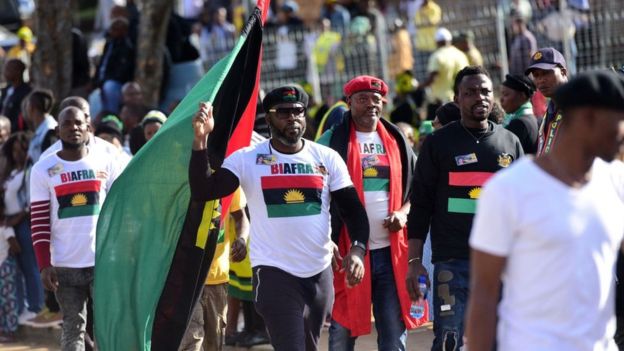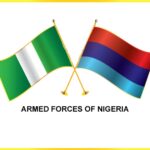By Okechukwu Onunaiju
Even in this modern time of centralised political authority of the contemporary state, the nature of the political process among Ndigbo remains essentially consultative and in addition to the horizontal and fragmentary structure of its underlining political system is also the philosophical rationale that no one knows it all, notwithstanding the brilliance and exceptional knowledge of anyone or group of persons as the reason why consultations are at the core of the Igbo political, social and cultural life. The political and philosophical rationale puts a high premium on reaching consensus through deliberate and extensive consultations. Beyond the authority of the contemporary government that cut across the units of various communities in Igbo land, there is no traditional authority that exercises control or power beyond its domain, which highest unit is usually a town and are most times culturally homogenous.
The nature of the political process makes it impossible for anyone person or group of persons to claim to act on behalf of Ndigbo except on the basis of delegation reached by consensus through deliberations and consultations. Even the declaration of the defunct sovereign state of Biafra was not an act of a reckless individual or personal adventure. On the 26th of May 1967, the 335 Consultative Assembly of Chiefs and Elders, had drawn the attention of the then Military Governor of Eastern Nigeria, Colonel Odimegwu Ojukwu to the then plight of Ndigbo in Nigeria and mandated him to “as soon as practicable”, declare the sovereign state of Biafra. The important thing is that the declaration of Biafra and struggle to sustain it, which lasted for nearly three years was a decision from extensive consultation and consensus of Ndigbo with adequate knowledge of the risks and sacrifices implied in such a decision.
- 42 killed in attacks, reprisals in Kaduna
- PODCAST: Do People Living With HIV Still Face Discrimination?
When the struggle for the sustenance of the defunct Republic failed, Ndigbo despite all the structural constraints and the psychology of defeat, re-entered Nigeria with vigour spreading out to all its nooks and crannies in confidence of an inclusive and enterprising Republic. With the Nigerian state faltering, especially since the start of the century and a return to civil rule, under the vicious corruption assault, launched by the predatory political elite, a new wave of restiveness have crept in, empowering hordes of nihilistic traducers masquerading as “freedom fighters”, “ethnic liberators” and other assorted irredentists. From among the Igbo nation, has emerged the Indigenous People of Biafra (IPOB) with a self-proclaimed mandate to restore the defunct sovereign state of Biafra.
From the current activities of this group in using terror and extreme intimidation against Ndigbo, mostly resident in Igboland, it is clear that it does not seek to liberate Ndigbo but to conquer Ndigbo in Igboland. By its series of imposed lockdowns enforced by the use of extreme terror, IPOB with no known structure of organisation and no iota of pretence to consult with any group or community in Igbo land relishes with pleasure the bludgeoning of Ndigbo, especially those resident in Igbo land to bankruptcy and penury. Every liberation movement in history takes its battle to the enemy and defends its own territory with suicidal determination.
Only IPOB makes its own territory a battle frontline, mindlessly destroying facilities and other infrastructure that would rather serve well, the so called sovereign state it craves. Imposing sit-in and lockdown orders, depriving Ndigbo of the essential and life-saving economic activities to fend off extreme deprivations emanating from the debilitating hemorrhage of a bankrupt Nigerian state is a total disservice to the Igbo nation. With a Nigerian state, whose extant national security has shrunk to the mere physical security of its political bosses around their fortified exclusive zones of residences, the least expected of the IPOB, if any of their messianic invocations about Biafra and by implication Ndigbo is to be taken serious, is to protect and secure Ndigbo in their farms, markets and any other places they are engaged in productive activities. But a maniacal power hungry and bloodthirsty IPOB seems only interested in “Biafra” and certainly careless about the Igbo nation and Ndigbo, otherwise in whose interest do they enforce the earth-scorched hard restrictions order enforced by the extreme brutality of burning, looting killing and complete destruction of lives and properties.
The defunct Biafra survived for nearly three years on account of the collective determination and sacrifices of Ndigbo through consultations and consensus. And IPOB, who wants now to own what it did not create, does not have the modesty and humility of generating a modicum of consensus through consultations rather it seeks to criminally conquer the Igbo nation through a relentless campaign of terror and intimidations.
Since its leader, Mr Nnamdi Kanu was captured by the Nigeria federal authorities; the group has gone berserk and misguidedly turned its venom against Ndigbo, leaving unscratched the Nigeria federal authority that snatched their hero. By the way, Mr. Nnamdi Kanu who excretes bile and contempt for the Igbo elite and arrogates encyclopedic knowledge of history to himself does not know that Kenya is not hospitable terrain for insurgents. If he truly knows history as he arrogantly claims, he would have known that it was Kenyans who tricked the highly elusive leader of the Kurdistan workers party (PKK), a Turkish insurgent militia, Mr Abdullah Ocalan, from the Greek embassy in Nairobi in February 1999, with a promise to fly him to the Netherland only to march him to the waiting Turkish jet painted in Malaysian national colours at the Nairobi airport and flown straight to waiting arms of the Turkish authority in Ankara that has been desperately seeking his capture since 1984. Mr. Ocalan has been imprisoned since then, in the Turkish Island of Mamara and despite that his armed group has been on and off negotiations with Turkish authority has not seen the light of day since his capture in 1999. And significantly, the PKK fighters and the huge Kurdish diaspora that finance their operations have not turned on their people as cannon fodder as IPOB has and continues to do in Igboland today.
Whether kidnapped, “illegally renditioned” or by other ways, his supporters described his capture, states don’t hand out rose flowers to their most wanted persons when they found them or organise an elaborate party to welcome them, in the form of the biblical prodigal son who returned home. Mao in China, Ho Minh in Vietnam, Castro and Che in Cuba all have huge state bounty on their heads for their capture and they scrupulously eluded their state enemies until their revolution triumphed.
For his reckless and thoughtless adventure, Nnamdi Kanu’s IPOB is leaving aside, the Nigeria and Kenya authorities and hounding Ndigbo and locking them indoors causing them to die in deprivations and hunger when they neither send Mr. Kanu on any errand nor were complicit in his capture.
But, should Ndigbo, spread across professions, business, politics, academia and all endeavours of life, watch helplessly as a rump of self-appointed messiah despoils the land? Nigeria state is vegetating and its security apparatus is simply not up to the task of halting the IPOB marauders. In a long-standing tradition of self-defense, communities in Igboland should organise themselves in vigilantes to help reform and redirect the many misguided youths involved in the murderous campaign of the IPOB.
Okechukwu Onunaiju wrote from Abuja

 Join Daily Trust WhatsApp Community For Quick Access To News and Happenings Around You.
Join Daily Trust WhatsApp Community For Quick Access To News and Happenings Around You.


